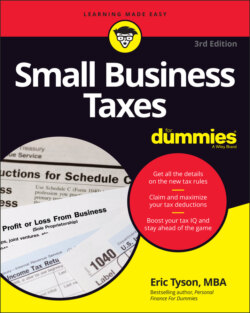Читать книгу Small Business Taxes For Dummies - Eric Tyson - Страница 48
Understanding the “solo” advantages
ОглавлениеThe pros of operating as a sole proprietor (going solo) may or may not outweigh the cons for a given small business owner. Each business (and owner) is unique and should weigh the pros and cons. Consider the following advantages:
Simplest tax rules and record keeping compared with other business entity options: You report your business income and expenses on Schedule C of IRS Form 1040 (discussed in detail in Chapter 8), and the net income or loss carries over to your personal income tax return. Though no walk in the park itself, compared with corporate tax forms, Schedule C is easier to complete.
Low cost to establish or discontinue: Without incorporating, it’s a relative snap to get going or shut down such an entity from the perspective of state and local regulations and requirements.
High flexibility to switch to other entity forms: You can easily switch to any of the other entities (corporation, LLC, and so on) I discuss later in this chapter.
Good retirement plan options: You can stash away a large chunk of your business earnings in a tax-advantaged retirement account (discussed in Chapter 3).
So does this mean that running your small business as a sole proprietorship is the way to go for you and your company? Not necessarily — next up are the drawbacks, which you should weigh in your case.
